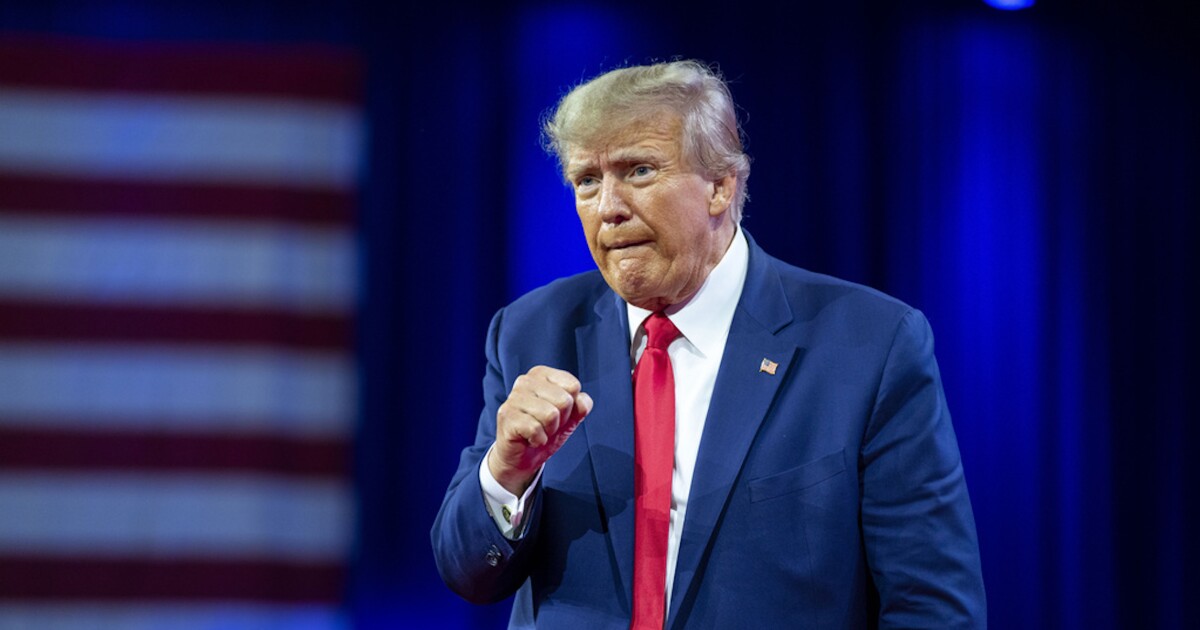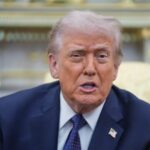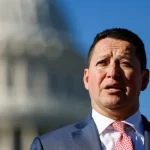

Former President Donald Trump is facing considerable legal exposure as he mounts his third presidential bid.
The 45th president is the subject of four criminal investigations from three sets of federal and state prosecutors. The investigations relate to Trump and his company’s finances, his handling of classified materials, his efforts to overturn the 2020 election, and his subsequent role in the Jan. 6 Capitol riot.
The former president, who has said he would not drop his 2024 presidential bid if indicted, also faces a barrage of civil suits.
CHARGES POSSIBLE AS PROSECUTORS INVITE TRUMP TO TESTIFY ON STORMY DANIELS PAYMENT
The Manhattan District Attorney’s Office, which is investigating Trump’s alleged 2016 hush money payment to porn star Stormy Daniels through ex-lawyer Michael Cohen and other business matters, invited the former president to testify, sparking renewed interest in his legal affairs.
These are the four investigations into the former president that could result in criminal charges:
Manhattan DA’s Office
Trump was invited to testify before a New York grand jury about alleged hush money payments made to Daniels during the 2016 presidential election.
Prosecutors in Manhattan DA Alvin Bragg’s office, who are still deciding whether to move forward on indicting Trump, invited him to appear before a grand jury next week regarding his business affairs. The grand jury notification appears to mark the most significant sign to date that Trump could face criminal charges, but it may only signify that the state prosecutor’s investigation is winding down.
Cohen, Trump’s former lawyer, testified before Congress in 2019 that he paid Daniels, whose real name is Stephanie Clifford, $130,000 during the 2016 campaign to prevent her from going public about an affair she claimed to have with Trump in 2005. Cohen, who pleaded guilty and served time over the alleged payment, told lawmakers Trump reimbursed him in monthly installments.
While it is not a crime to send or receive hush money payments, Manhattan prosecutors could argue that the $130,000 effectively became an improper donation to Trump’s 2016 campaign. Operating under the theory that the money silenced Daniels and kept the affair under wraps before Election Day, it could be fair to say the payment benefited Trump’s candidacy.
It is unclear what charges Bragg’s office is mulling against Trump. Prosecutors in the Cohen case alleged that the Trump Organization “falsely accounted” for the monthly payments as legal expenses. Falsifying business records in New York technically amounts to a misdemeanor. To elevate it to a low-level felony, prosecutors in the Trump case must show that the conduct was committed in connection with another crime. They must also prove the former president’s “intent to defraud.”
Bragg’s team locked down a guilty plea last August against Allen Weisselberg, the Trump Organization’s longtime chief financial officer, who agreed to testify against his former company as part of the deal. New York Attorney General Letitia James also unveiled a $250 million civil lawsuit against Trump in September.
Calling the matter an “old, and rebuked case which has been rejected by every prosecutor’s office,” Trump, who denies the affair with Daniels, lambasted the case in a post Thursday on his Truth Social platform.
Fulton County DA’s Office
For nearly two years, Atlanta-based prosecutors have conducted a criminal investigation into interference in the 2020 presidential election when Trump lost to President Joe Biden. Fulton County District Attorney Fani Willis initially requested for a special grand jury to look into a Jan. 2, 2021, phone call Trump had with Georgia Secretary of State Brad Raffensperger in which Trump asked him to “find” enough votes for him to win the state.
Trump has denied wrongdoing and described the call as “perfect.” Separately, the inquiry also focuses on the Trump campaign recruiting an alternate slate of presidential electors in a bid to change Georgia’s results from Biden to Trump.
Georgia law requires prosecutors to present a final report on its findings, and this case included charging recommendations. The report indicated that of a pool of 75 witnesses, at least one may have committed perjury. Willis had asked the judge to keep the report sealed to protect the investigation and shield the rights of any possible “defendants.” However, it is possible that no charges will arise from the investigation.
Trump’s presidential campaign responded to the report’s release, stating that the former president “did absolutely nothing wrong.”
Willis told Fulton County Superior Court Judge Robert McBurney on Jan. 24 that a decision on whether to bring criminal charges over the investigation was “imminent.”
The foreperson of the special grand jury, Emily Kohrs, went on a string of media tours late last month, raising speculation as to whether she may have done damage ahead of any potential charges arising from the investigation.
In interviews with CNN, the Associated Press, the New York Times, and others, the 30-year-old Kohrs offered some eye-raising details about key witnesses and charging recommendations potentially surrounding nearly a dozen people.
Special counsel investigation into classified documents
Attorney General Merrick Garland appointed special counsel Jack Smith in November to lead the Department of Justice’s investigations into Trump’s response to his 2020 election loss, his role in the Jan. 6 Capitol riot, and his handling of classified documents.
The war crimes prosecutor took over the DOJ’s investigations after Trump declared his 2024 presidential bid, leaving Garland in need of an apolitical investigator to handle such politically sensitive matters.
With the approval of the DOJ, the FBI conducted an unprecedented raid of Trump’s Mar-a-Lago resort in Palm Beach, Florida, in August to retrieve classified materials belonging to the National Archives and Records Administration.
While Trump has claimed he had “declassified” those materials and was permitted to take them from the White House after leaving office, federal officials disagreed and eventually conducted a late-night raid on the residence to collect the materials.
Since then, Biden and former Vice President Mike Pence have also found classified materials in their homes and private offices.
Special counsel investigation into 2020 election overturn efforts and Jan. 6
Pence is the highest-profile figure from the Trump administration to be subpoenaed in Smith’s inquiry, but he is far from the only high-ranking name the special counsel is demanding testimony from. Smith has also subpoenaed Robert O’Brien, who served as Trump’s national security adviser until Biden took office, as part of his investigation. Facing questions about Trump’s involvement in the events on Jan. 6 and his handling of classified documents, O’Brien has invoked executive privilege to avoid providing answers, according to CNN.
CLICK HERE TO READ MORE FROM THE WASHINGTON EXAMINER
Despite their frayed relationship, Pence and Trump have agreed to fight Pence’s subpoena on executive privilege grounds.
Kaelan Deese contributed to this report.







